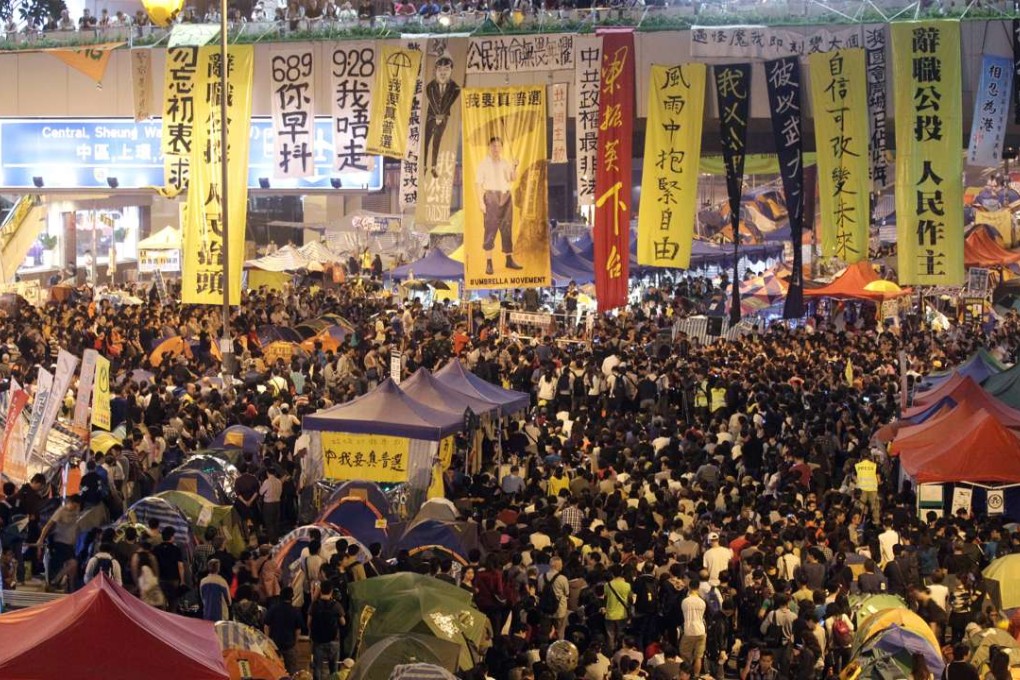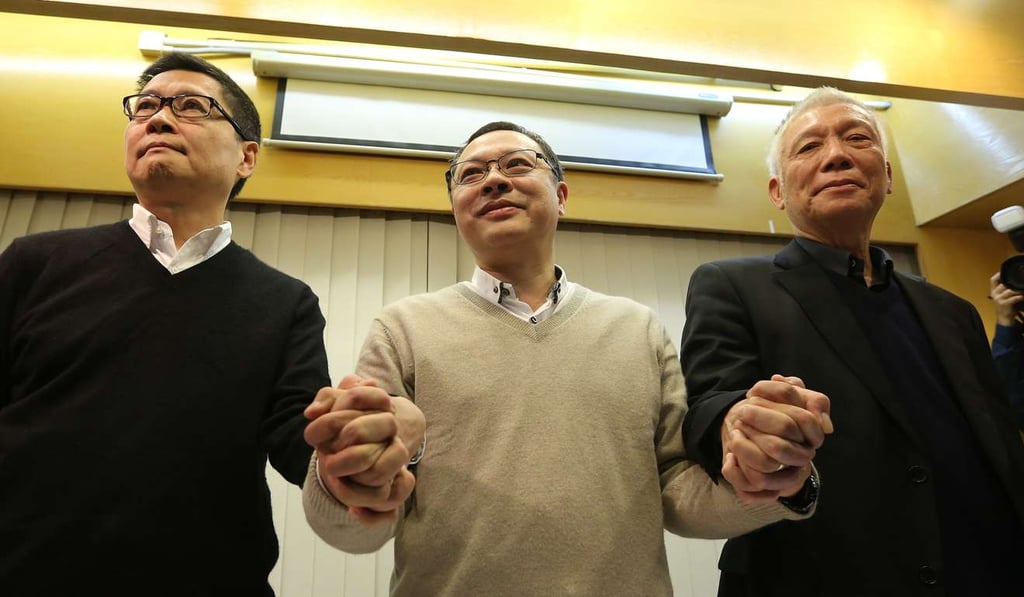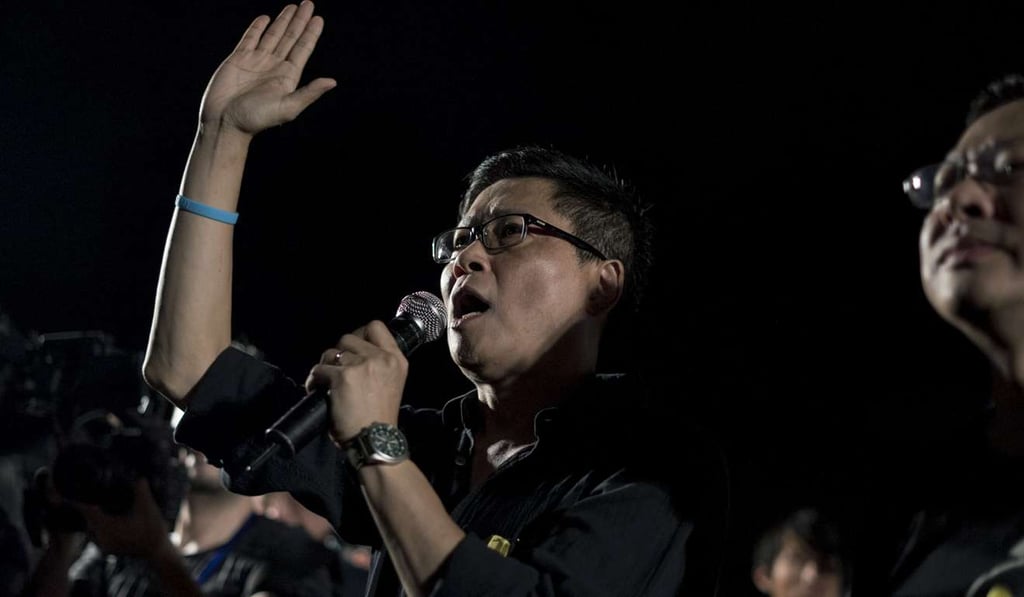Advertisement
Occupy leaders arrested and charged a day after Carrie Lam wins Hong Kong chief executive election
Authorities ordered the three Occupy founders, along with six lawmakers and activists, to report to Wan Chai police headquarters
Reading Time:2 minutes
Why you can trust SCMP

Nine leaders and key participants of Hong Kong’s Occupy movement were arrested and charged on Monday night over their roles in the 2014 pro-democracy street protests – a day after Carrie Lam Cheng Yuet-ngor pledged to unite a divided society as the city’s newly elected chief executive.
In a move considered long overdue by critics of the protests, authorities ordered the three Occupy Central founders, along with six lawmakers and activists, to report to the Wan Chai police headquarters.

Advertisement
The three leaders of the protests, Reverend Chu Yiu-ming and academics Benny Tai Yiu-ting and Chan Kin-man, face three counts each – conspiracy to commit public nuisance, inciting others to commit public nuisance, and inciting people to incite others to commit public nuisance. Each charge carries a maximum penalty of seven years in jail.
The trio will be prosecuted over offences allegedly committed between March 27, 2013 – when they first published in newspapers their Occupy manifesto – and December 2014, when they turned themselves in to police.
Advertisement

Advertisement
Select Voice
Choose your listening speed
Get through articles 2x faster
1.25x
250 WPM
Slow
Average
Fast
1.25x